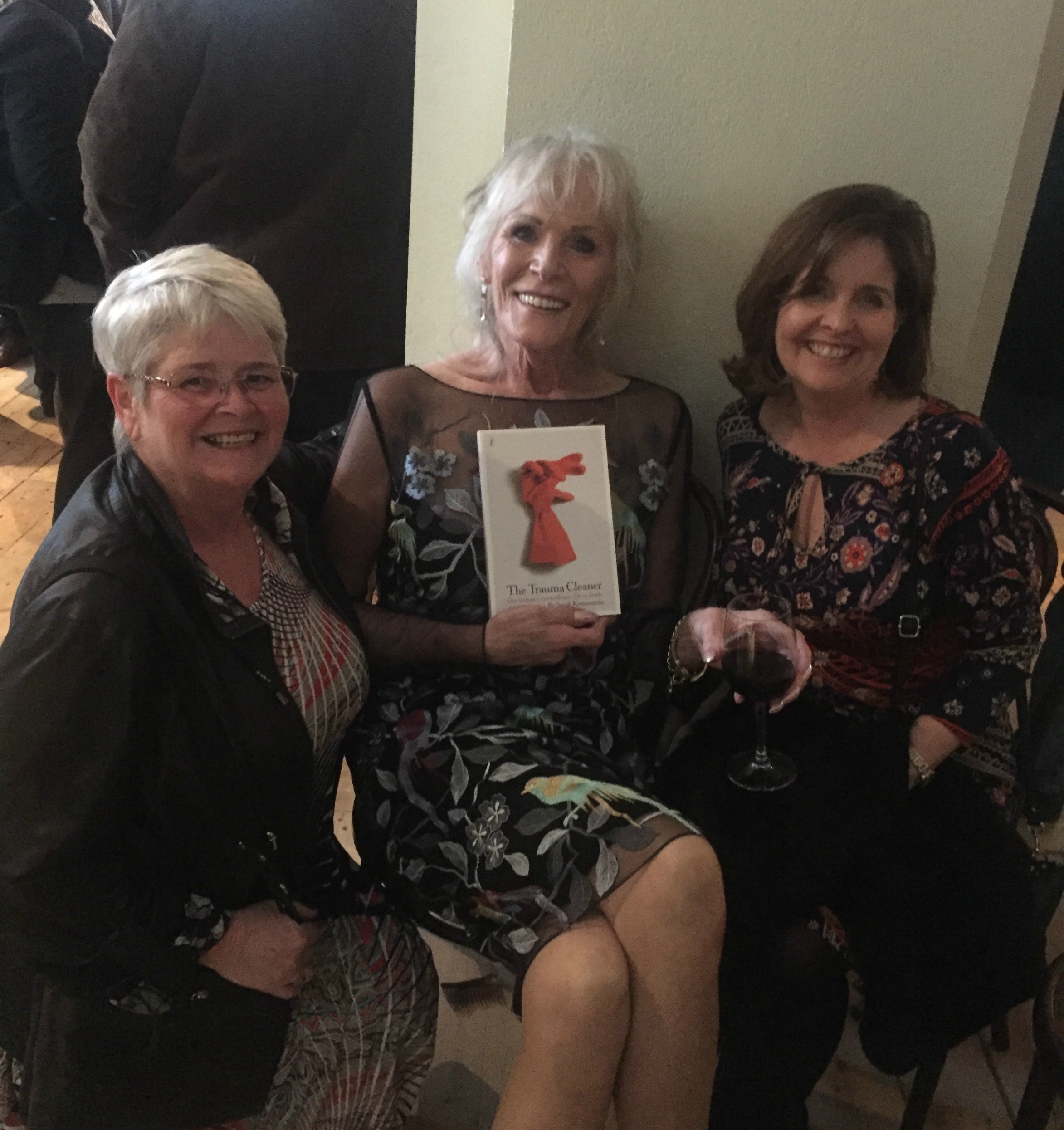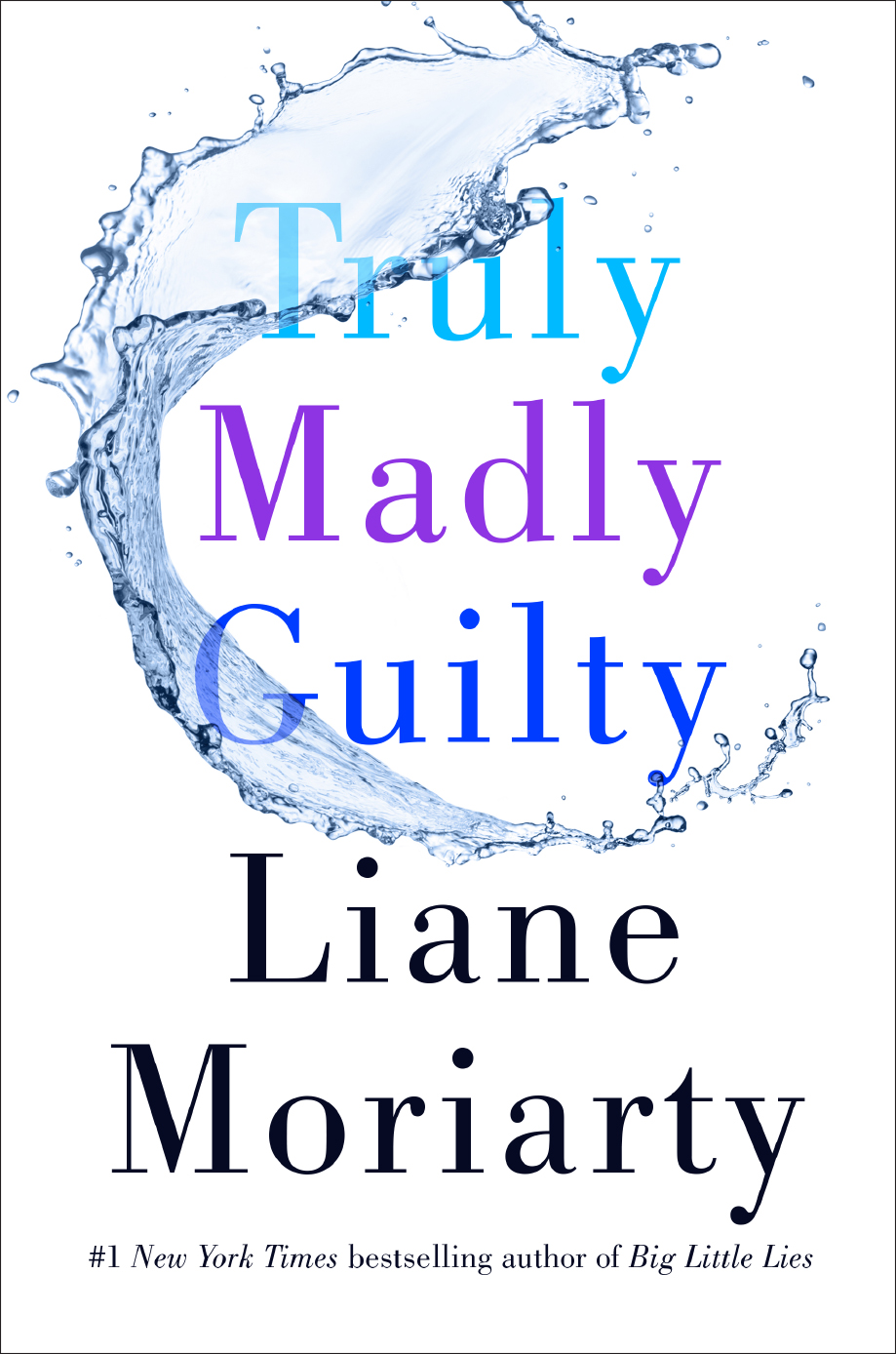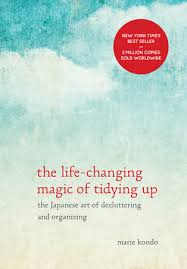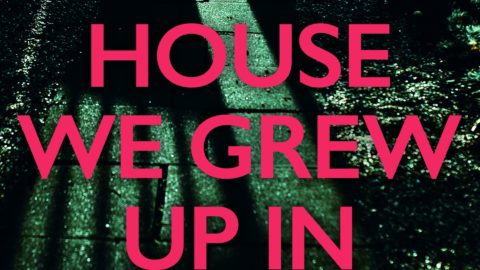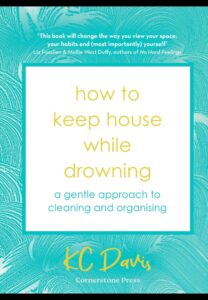 KC Davis kept turning up on my radar – chats with international colleagues, social media mentions, a TED Talk. I thought I’d better tune in. Listening to her story, I felt like I was listening to the stories of many of my clients. Listening to her solutions, I knew I needed to read her book.
KC Davis kept turning up on my radar – chats with international colleagues, social media mentions, a TED Talk. I thought I’d better tune in. Listening to her story, I felt like I was listening to the stories of many of my clients. Listening to her solutions, I knew I needed to read her book.
The key premise of her book, How to Keep House While Drowning – a gentle approach to cleaning and organising, is that care tasks are morally neutral. She believes that as humans we are worthy of love and acceptance whether our house is immaculate or a mess. “Of course that’s true!” we respond. But years of social conditioning creep in and say otherwise. How many of us can truly say we haven’t judged others based on their housekeeping and presentation? Davis doesn’t delve into the overriding social issue, she speaks simply and directly to the reader who is quietly drowning in dirty dishes, shame and unfolded laundry.
According to Davis, “When you view care tasks as moral, the motivation for completing them is often shame. When everything is in place, you don’t feel like a failure; when it’s messy or untidy, you do”. Instead of shame being our catalyst to complete chores, she suggests letting kindness to future you be your motivation. She backs this idea up with concrete suggestions that can be customised to the reader’s unique barriers, strengths and interests.
One of my favourite techniques in the book is “The Five Things Tidying Method”. My own clients often tell me that they are so overwhelmed that they don’t know where to start. Davis notes that although a space can look overwhelming, there are actually only five things in any room:
- Trash
- Dishes
- Laundry
- Things that have a place and are not in their place
- Things that do not have a place
Ignoring everything except one category at a time, helps focus efforts, puts a limit on what you intend to achieve and gets you that little dopamine hit when each step is completed.
Thinking about tasks as functional, rather than moral, can also help manage expectations. In our hoarding work, Angela and I often talk about the priorities being safety, then health, then comfort. Davis made this concept visual, likening care tasks to a cupcake. The bottom layer of the cupcake is about keeping your body and space safe and healthy, the icing is the things that increase your comfort, and the cherry on top is anything that makes you really happy. So instead of saying to yourself that you won’t be finished with the laundry until every bit is done, folded and put away, (an overwhelming task!) you might decide you need to complete enough laundry so that you have sheets on the bed and clean clothes for the morning. The icing might be to have the rest of the laundry gathered and sorted. The cherry on top might be calling a laundry service to collect what you have gathered and sorted! Thinking about tasks as functional, and having a staged approach, helps to break down the barriers that often cause us to procrastinate.
Another of Davis’s strategies that resonated was to “Drop the Plastic Balls”. She says, “When you’re struggling to function it’s important to identify what are your glass balls. Feeding yourself, caring for your children and/or animals, taking your medication, and addressing mental health are all examples of glass balls. Recycling, veganism and shopping local are plastic balls. They may be important, but they will not shatter your life if you drop them in the way the glass balls will”.
KC Davis speaks with a level of understanding and empathy that can only come from painful personal experience. She is a licenced professional therapist, author and speaker whose own home descended into chaos as a result of adult ADHD, anxiety and postnatal depression. She is the embodiment of the stereotypical smart person who struggles with the simplest tasks. She has exactly the right credentials to speak on the topic with clarity and compassion. I have already recommended KC Davis’ book, How to Keep House While Drowning – a gentle approach to cleaning and organising, to many of my clients and started using the strategies in our work together. I would recommend this book to anyone approaching care tasks from a place of shame, the people who support them, and anyone who may be harbouring judgement about people around them who are struggling.
Written by Wendy Hanes, CPO, CPO-CD, Master Trainer

